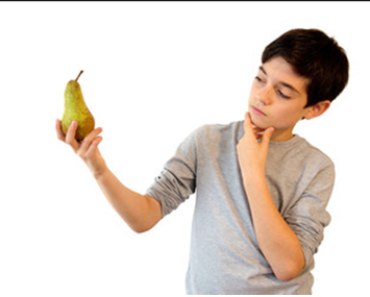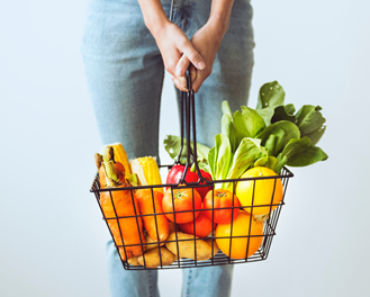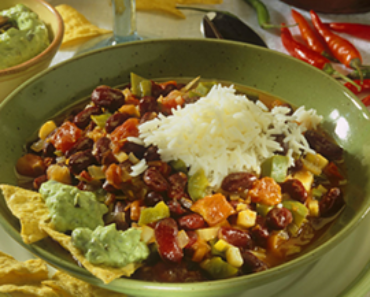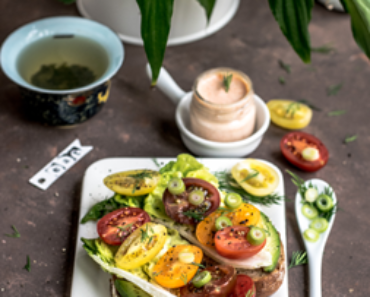How To Assess If A Vegetarian Diet Is For You
The best way to assess if a vegetarian diet is for you is to get a full understanding of what it entails. Making a significant diet transition is never easy, and choosing to eat meat free is definitely a major change, that especially depends on the reasons you choose to do so. For example, the choice of going vegan for ethical reasons such as being against the slaughter of animals for food may be more motivating and easier to stick with than eliminating meat to lower cholesterol, while still loving the thought of that grilled steak.
Below is a breakdown of all a vegetarian diet entails. Use this information to determine if this type of lifestyle is right for you.
Detox
Keep in mind that there will be a detox period where you will crave meat. Most everyone goes through it, and some have slips. This is common and par for the course.
What Is A Vegetarian Diet?
A vegetarian diet is simply a plant-based diet. There are different types of vegetarians and diets will therefore vary. However, for the most part, vegetarians do not eat meat, fish, poultry, or dairy. Some vegetarians do eat eggs and dairy. Vegans consume absolutely no meat products or by products, like dairy, butter and eggs.
What Can You Eat On Vegetarian Diet?
Even the strictest of vegetarians can enjoy an array of delicious foods. For instance, you can still eat nuts, eggs, whole grain breads, peanut butter, vegetables, rice, pasta, tofu and so much more. Therefore, as you can see, your diet doesn’t have to be boring.
When it comes to a vegetarian diet many people believe, they can eat all they want since they aren’t eating meat. This is completely false. No matter what type of diet you are on, calories always count.
With a vegetarian diet, your portion sizes will usually be larger since most of the foods are lower in calories. However, that doesn’t mean you should overdo it. You still need to watch what you eat if you want to maintain a healthy weight. For example, chips and Snickers bars are vegan, but they are high in calories and not healthy.
Are Vegetarian Diets Balanced?
Most people believe vegetarian diets aren’t balanced since they lack an important food group. According to the American Dietetic Association, vegetarian diets can indeed be balanced. It’s all about planning ahead of time. You have to make sure you are meeting all of your nutritional needs through plant foods, and there are many great choices.
If you aren’t getting all the nutrients you need it can lead to illness. Because of this, some vegetarians use dietary supplements to ensure they are getting all the nutrients their body needs. Supplements are very important as they can help you replace the nutrients you would otherwise get from animal foods.
As stated before, it takes planning to be a vegetarian. You need to plan and learn about the specific nutrients provided by plant foods to get enough protein, calcium and other nutrients that you would otherwise get from meat and dairy.
Protein
There are many vegetarian protein sources that replace meat, including, soy products, eggs, Greek yogurt, nuts and nut butters, beans and legumes, seeds, whole grains, vegetables, and some fruits.
Vitamin B12
Dairy and meat foods are the only dietary sources of B12. A lack of B12 can lead to anemia; there are many B12 fortified foods, including non-dairy milks, meat substitutes, breakfast cereals, and nutritional yeast. Supplements are also available.
Iron And Zinc
As a vegetarian, your risk for iron deficiency is greatly increased. This is especially true for women who are menstruating. Dried fruit, broccoli, soybeans, and legumes are all great sources of iron. Zinc, like iron is not as easily absorbed from plant sources as it is from animal products.
Cheese is a good source if you choose to include that in your vegetarian plan, along with whole grains, beans, mushrooms, nuts, soy products, and wheat germ. You can also get iron and zinc from supplements, check with your doctor.
You want to make sure the supplementation you are taking is safe. Iron deficiency affects women more so than men. If you are a woman, take extra care to ensure you are getting the right amount of iron in your diet.
Calcium
Dairy products such as milk and cheese contain plenty of calcium. Vegan sources include fortified orange juice, almonds, broccoli, edamame, artichoke, tofu, blackberries, soymilk, beans, and kale. Calcium supplements are also available.
Vitamin D helps the body process calcium and plays an important role in bone health. Vitamin D enriched foods are available, including soy and rice milk, and some cereals and margarines. Spending 10 minutes or so in the sun daily helps the body produce vitamin D naturally.
What can you eat on a vegetarian diet?
There are plenty of food choices for vegetarians to enjoy that include, tofu, tempeh, beans, seeds, nuts, vegetables, whole grains, rice, pasta, cereals, fruits, and dairy products.
There are also many vegetarian soy products, like hot dogs, veggie burgers, and chicken nuggets. The many great choices of meat substitutes can still allow you to enjoy your favorite dishes.
Before You Start A Vegetarian Diet
If after reading this information you decide a vegetarian diet is right for you, please take the time to speak with your primary health care provider before you get started.
If you can, speak with a registered dietitian as well. They will be able to help you come up with a well-balanced eating plan. A well-balanced eating plan will ensure you don’t deprive yourself of some of the most important nutrients your body needs to survive. As long as you are getting the nutrients you need, a vegetarian diet can prove to be a very smart health move.




